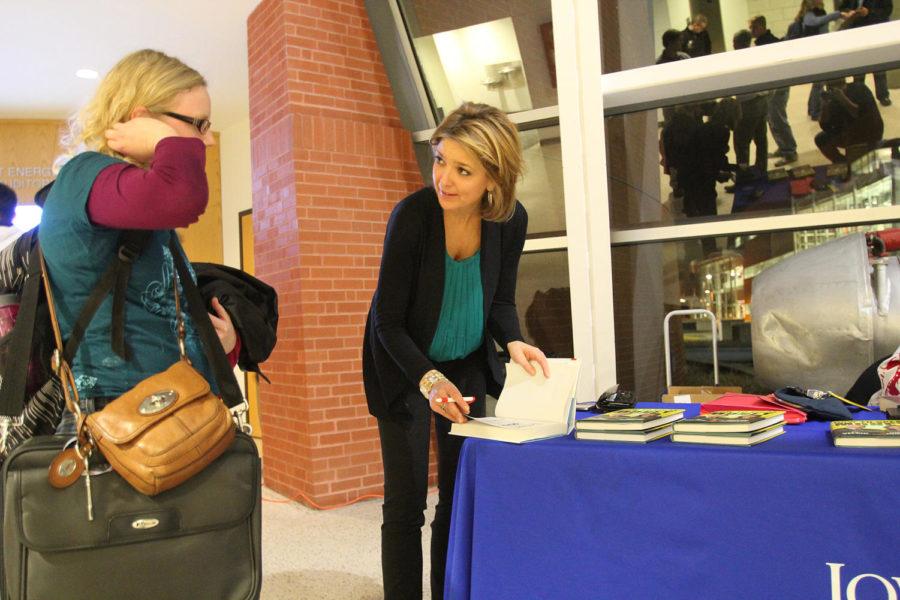CNN’s Christine Romans presents lecture on jobs and globalization
November 14, 2012
The night saw two CNN anchors on campus, but many students and members of the public gathered in Howe Hall’s Alliant Energy-Lee Liu Auditorium to see Christine Romans’ lecture “American Job Prospects in a Globalized World.”
She focused on jobs in the United States and how they have been and will be affected by globalization.
“Globalization is 20, 30, 40 years in the making, more like 30 years in the making,” Romans said.
Touching on issues regarding the “fiscal cliff,” she explained why everyone should be interested in this issue right now.
The fiscal cliff has to due with the raise of the debt ceiling congress passed last year. The raise is contributed to the fact that America borrows more money than it takes in.
“The fiscal cliff is dominating every second of everyday in Washington right now, trying to figure out how we’re going to solve this thing and who is going to give up what,” Romans said. “If we go off the fiscal cliff, the American job prospects in a globalized world will become a story very easy to tell. There will be hundred of thousands, if not a million fewer jobs available and 9 percent unemployment by the end of the year. Those are middle of the road economist forecasts.”
A topic most people are interested in today is job creation and unemployment. According to the data Romans provided, there were 114,000 jobs created in September.
While that is considered good, “it is not enough to the keep up with population growth,” Romans said.
The data also showed that there is under 400,000 people going and applying for first time unemployment. This number is down from 640,000 in recent years.
Another peice of data showed the percent of the unemployment eligible for employment in the labor force. This number being somewhere around the mid-60s for percentages, making it the lowest it has been since 1981.
Romans could not come up with a number but added: “That percentage is like countries where women are not allowed to work. It’s like countries where a whole segment of the population is set aside.”
On a heavier note, Romans brought up the issue of how America is becoming “Applelized,” meaning America wants to invent its stuff here, have its intellectual property here and its product to be sold here.
There is a desire for CEOs to be engineers and to have a creative and innovating quality.
“All I hear from CEOs is that they need more STEM [science, technology, engineering, and math] and more STEM fluent liberal arts students,” Romans said.
More data concluded in 2008 the number of Engineering graduates in China is 704,604 while only 69,908 in the United States. However, the percentages of those graduates who are considered to be “immediately employable” differ.
Only 10 percent of Chinese engineering graduates seem to fit the criteria whereas 81 percent of American engineering graduates are classified as “immediately employable.”
One of the final topics touched during the lecture was the skills gap in America.
“Technology is changing so fast and what they need in their high-tech labs and on factory floors is changing so fast workers cannot keep up,” Romans said. “The CEOs say that we do not have the skilled workers in America.”
Romans added on what can be done to bridge the skills gap.
“I think partnering of universities wit companies is good. I know this university [Iowa State] has a really good partnership program with [John] Deere. Companies are working with universities to help tailor and train workers for jobs they need,” Romans said. “Another factor of closing is the skills gap is the jobs that do not need a four-year degree.”
Romans met with audience members for a meet and greet afterward and offered a book signing.
A 1993 graduate from Iowa State’s Greenlee School of Journalism and Mass Communication, Romans is currently host of CNN’s “Your Bottom Line,” a Saturday morning personal finance and lifestyle show. She also reports on politics, economics and international business for CNN’s morning shows. She has authored two books: “How to Speak Money” and “Smart Is the New Rich.”







